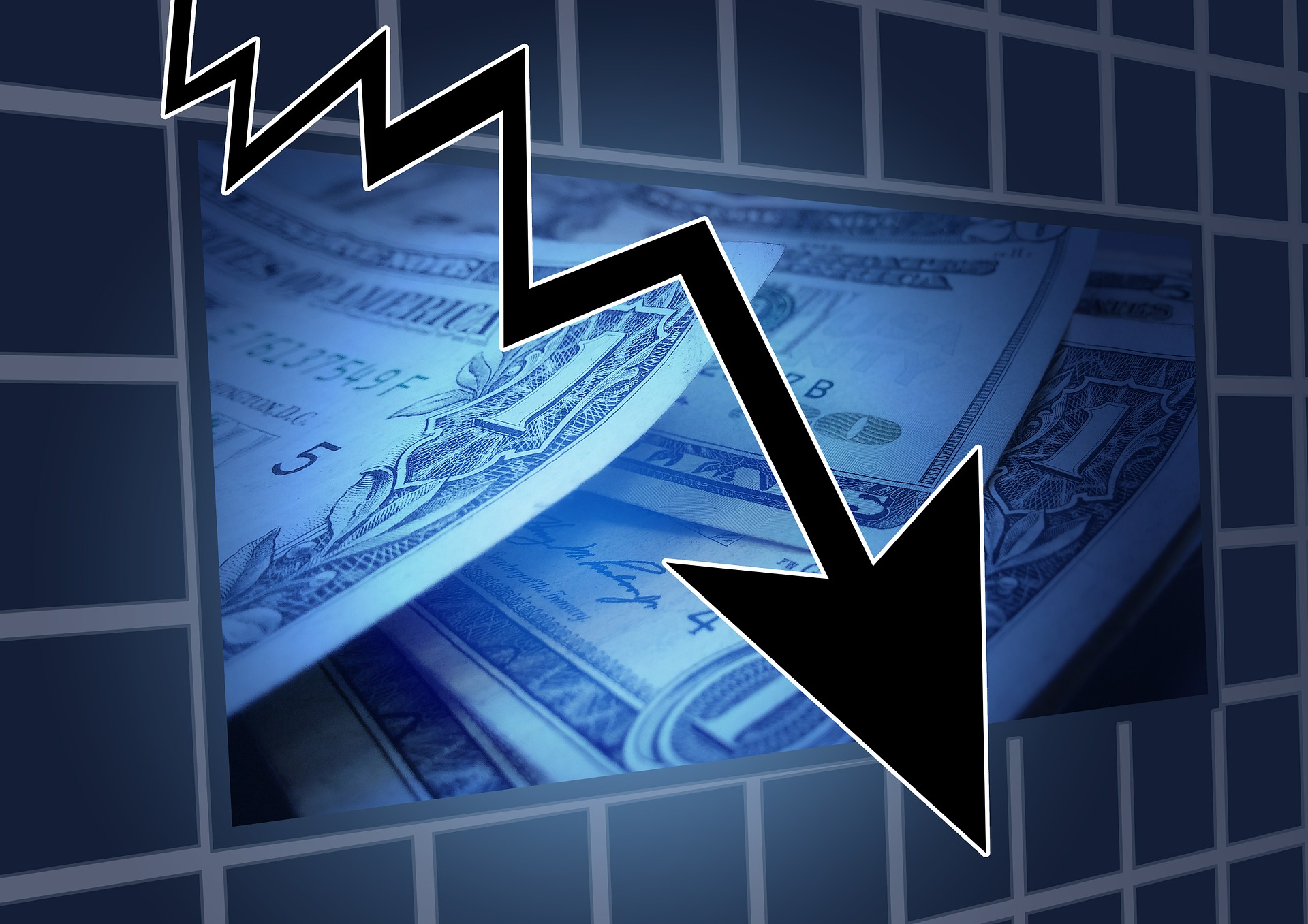America’s Storm Clouds of Recession
Key Points
- The ongoing trade war with China is devaluing their currency and China is retaliating at the US tariffs by halting imports of American goods, including grain.
- The wide yield curve of US Treasury Bonds is a concern for the economy because they can indicate a downturn.
- Manufacturing is declining globally except for the United States and Canada.
- Expanding US tariffs are compelling China to implement an economic stimulus.

Inverting Government Debt
On Monday, the yield curve of United States Treasury Bonds reached a peak spread of 32 points. The yield curve is a measure of the difference in bond interest rates. In a nominal economy, the longer maturity bond should have a higher yield than a shorter maturity bond. However in recent months the curve has inverted, with the shorter term 3-month bonds producing higher yields than 10-year bonds. The last time this inversion occurred in 2007, the economy was unstable and would soon enter a recession. This inversion also proceeded recessions of the last fifty years.
The Manufacturing PMI Index Recession
The investment bank J.P. Morgan surveys manufacturing globally to compute their PMI index. This PMI index is a composite score of seven figures unique to each economy. They are new orders, new exports, employment, input prices, output prices, and future output. In the last three months, all of these figures except for input prices and future output have declined overseas. This manufacturing recession is already in progress in the Pacific countries of China, Japan, South Korea, and Taiwan. Manufacturing is also in recession in the European countries of France, Germany, and the United Kingdom. However the PMI Index is still growing marginally in the United States and Canada. This growth is unlikely to continue with the 10% tariffs about to be implemented by the Trump Administration.
The China Stimulus
With President Trump’s latest threat to tax over three hundred billion dollars of Chinese imports at a 10% tariff on top of existing tariffs, the Chinese are concerned that the tariffs will lead to a contraction of their economy from 6.5% to 6%. In order to combat this downturn, analysts at Goldman Sachs are speculating that China will soon implement a stimulus in the form of tax cuts. The Goldman analysts are also expecting a 2.7% decline in Chinese exports. This decline could further compel China to expand its stimulus beyond the tax cuts.
Recession is a threat to every business. Managers need to educate themselves on the details of international economics to best prepare for the incoming recession.
At Bear Stearns we watch macro economic indicators on a national and global scale vigilantly seeking ways to protect and provide opportunities to our clients across all sectors. With each downturn, recession or market shift comes opportunity for those that have the right information. Providing that information to our clients is our commitment.
For more information contact us at: info@bearstearnscompanies.com













